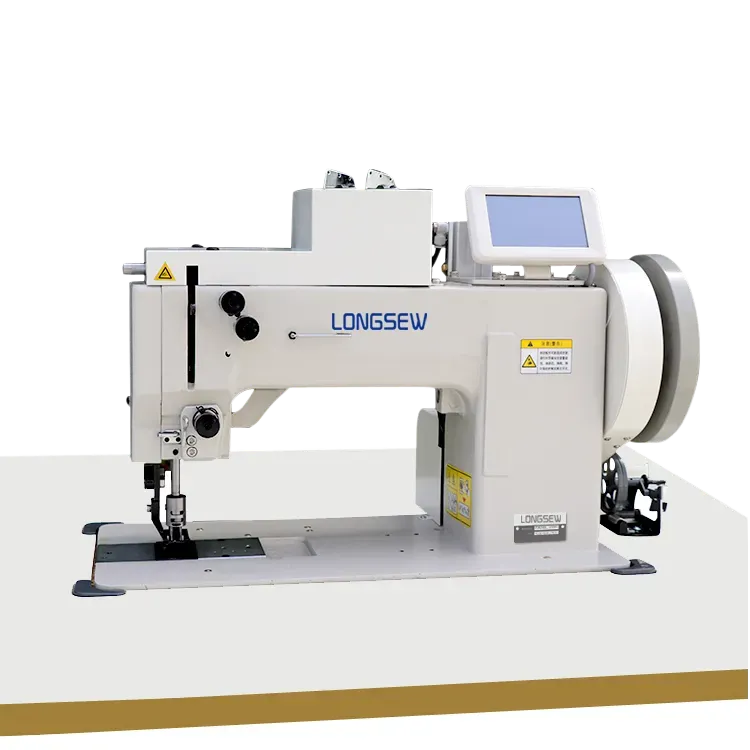Exploring the Cost of Automatic Sewing Machines for Every Budget and Skill Level
The Price of Auto Sewing Machines A Comprehensive Analysis
In recent years, the demand for auto sewing machines has surged significantly, driven by advancements in technology and the growing interest in DIY projects, fashion design, and home textile industries. The convenience and efficiency offered by these machines have made them essential tools for both amateur and professional sewers alike. However, as the market expands, potential buyers often find themselves asking the crucial question what influences the price of auto sewing machines?
Understanding Auto Sewing Machines
Auto sewing machines, often referred to as computerized or automatic sewing machines, incorporate technology that automates various sewing functions. These machines typically feature a range of pre-programmed stitch patterns, automatic needle threading, and smart sensors that adjust tension and fabric feeding. This level of innovation allows users to achieve professional-quality results with less effort and time.
Price Range and Factors Influencing Costs
When it comes to pricing, auto sewing machines can range from as low as $200 to over $5,000. Several factors affect the price points of these machines
1. Brand Recognition Well-established brands like Brother, Singer, Bernina, and Janome often carry a premium due to their reputation for quality and reliability. Investing in a machine from a reputable brand can be beneficial in terms of durability and customer support.
2. Features and Functionality The more features a machine offers, the higher the price. Entry-level models may include basic stitching functions and limited foot attachments, while high-end machines feature advanced options such as embroidery capabilities, a wide range of stitch types, and programmable settings.
auto sewing machine price

3. Build Quality The materials used in manufacturing an auto sewing machine can significantly affect its price. Machines made from high-quality metals typically offer greater stability and longevity compared to those made predominantly from plastic.
4. User-Friendly Interfaces Machines equipped with touchscreen displays and intuitive navigation systems often come with higher price tags. These features enhance the user experience, especially for beginners who may find traditional dial settings cumbersome.
5. Accessories and Attachments Many auto sewing machines are sold with a variety of accessories, such as quilting feet, walking feet, or embroidery frames. The inclusion of these items can justify higher prices but also adds value for users who plan to exploit the full potential of the machine.
6. Warranty and Support Comprehensive warranties and customer support options can also influence pricing. Machines that come with extended warranties and responsive service are generally more expensive as they reflect the manufacturer's confidence in their product.
Investment vs. Cost
While it might be tempting to opt for a less expensive model, it's essential to consider the long-term value of the investment. Cheaper machines may lack durability, advanced features, and may require frequent repairs, ultimately costing more in the long run. Investing in a mid-range or high-end auto sewing machine can provide years of reliable service and the capability to grow alongside your skills, making it a more economical choice over time.
Conclusion
In conclusion, the price of auto sewing machines varies widely based on several influential factors, including brand, features, build quality, user interface, and included accessories. Understanding these aspects is crucial for potential buyers to make informed decisions that align with their sewing needs and budgets. Whether you are a seasoned professional or a beginner, selecting the right auto sewing machine can enhance your sewing experience and enable you to create stunning garments and projects with ease. Investing in the right machine is not just a purchase; it's a commitment to cultivating your passion for sewing.
-
Leather Sewing Machine: The Industrial Standard for Tough MaterialsNewsJul.18,2025
-
Sail Making Machine: Heavy-Duty Stitching for Industrial and Marine NeedsNewsJul.18,2025
-
Sling Sewing Machine: The Backbone of Heavy-Duty FabricationNewsJul.18,2025
-
Leather Sewing Machine: Precision for Heavy-Duty StitchingNewsJul.18,2025
-
Big Bag Sewing Machine: Powering the Future of Bulk PackagingNewsJul.18,2025
-
FIBC Sewing Machine: Essential Equipment for Bulk Bag ProductionNewsJul.18,2025
-
Heavy Duty Leather Sewing Machine: A Must-Have for Professional LeatherworkNewsMay.28,2025





























